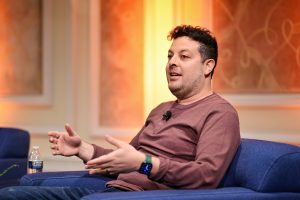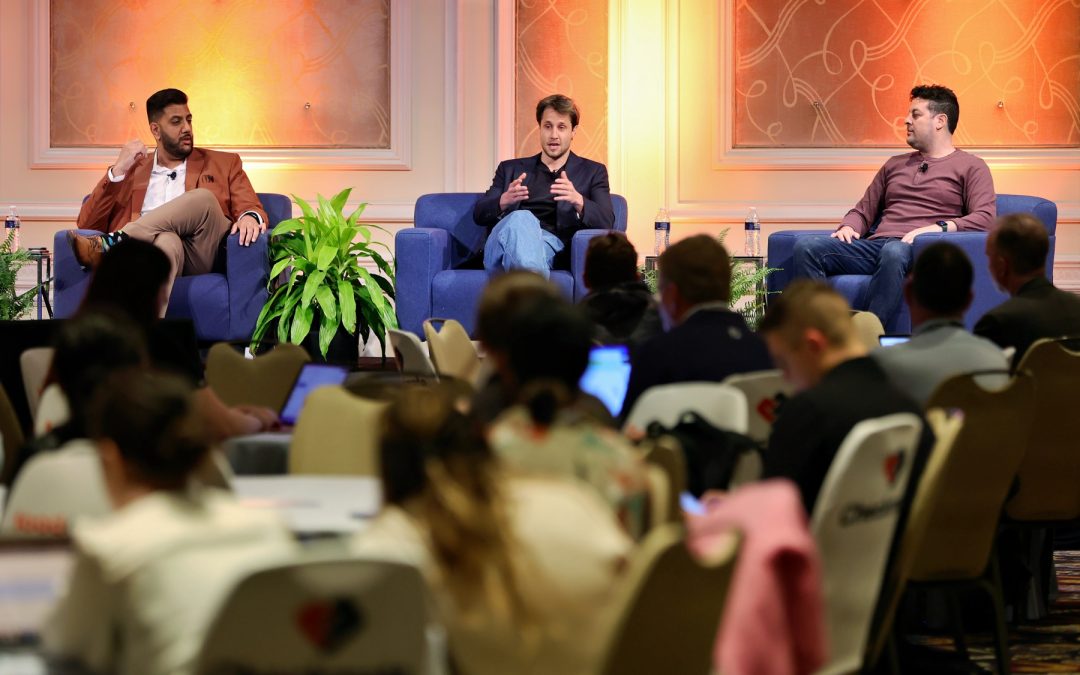It wasn’t long ago that off-premises orders were an afterthought for operators. But today the game has changed.

Andrew Martino, the founder of gtk
Andrew Martino, the founder of gtk, which stands for ghost truck kitchen, loves the new playing field. “We are a multi-concept single-line kitchen, optimized for takeout, delivery, and catering,” he told the audience at the eighth-annual Food On Demand Conference during a panel discussion moderated by Peter Backman. “All of our brands are our sub-brands. And we’re thriving.”
Martino credits much of gtk’s success to the functionality of its tech stack. It keeps the system humming. But Martino knows not to tinker too much.
“Tech fatigue is real,” he said. “During Covid I said yes a lot. But now I’m not touching our tech stack. It works well. What’s important is to have one single source of truth so you have accurate counts in your inventory and how things are selling.”
Máté Kun is also a fan of simplicity. He’s the CEO and co-founder of London-based Growth Kitchen, an AI-driven food-tech platform that connects restaurant brands with kitchen operators.
“We operate 150 kitchens, and in some kitchens we have three or four brands,” he said. “We have to be able to quickly see what is ordered and what is sent out. We want one single vertebrae in the kitchen.”

Prashant Kumar Patel, vice president of business development at Chef On Call
Chef On Call, a quick-service delivery restaurant that specializes in comfort food, keeps its spine strong through its commitment to a unified customer experience, said Prashant Kumar Patel, vice president of business development. “That’s what the consumer expects,” he said.
That means providing order tracking and timely updates. “Our goal is to go from order to drop in under 40 minutes,” he said.
Orders through third-party delivery marketplaces are key for brands that can effectively manage them. This is where AI can be invaluable, said Kun.
“AI allows us to run data through one database and figure out how our kitchens are doing,” he said. “AI can alert us to things that help quality control. Our system can tell if some locations have Uber Eats tablets closed during certain times. AI will trigger a message to the kitchen and have responses set up. It serves as a closed-loop agent that keeps learning and will send out better messages the next time. We use dozens of AI agents.”
Kumar Patel makes a point to hat-tip Microsoft Teams, which it relies on for many functions, including its telephone and marketing platforms. “It can be a challenge to add layers to a tech stack,” he said. “If one piece fails it creates friction. We push much of our training through Microsoft.”
What will the future look like? Kuman Patel has a hunch.
“There will be decentralization. You will purchase something from Uber and the order will be taken over by an autonomous-delivery organization. This will give more money to the restaurant and savings to the customer,” he said. “We’re 15 years away from that.”


